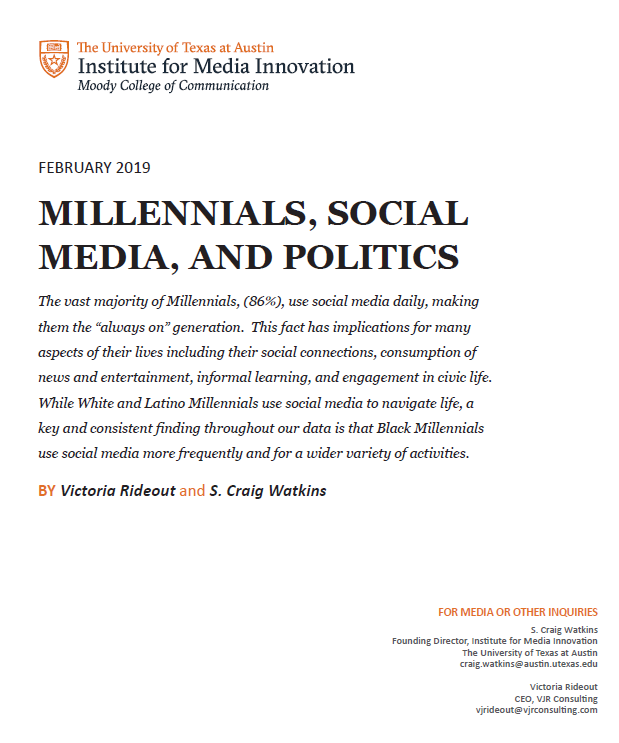As social media evolves, we now see the diversity of ways it matters in young people’s lives: for informal learning, entertainment, access to news and information, participating in civic and political life, and to connect to people with whom they share common interests. The vast majority of Millennials, (86%), use social media daily, making them the “always on” generation. This fact has implications for many aspects of their lives including their social connections, consumption of news and entertainment, informal learning, and engagement in civic life. While White and Latino Millennials use social media to navigate life, a key and consistent finding throughout this study from Vicky Rideout and the University of Texas’s S. Craig Watkins is that Black Millennials use social media more frequently and for a wider variety of activities.
Read More




